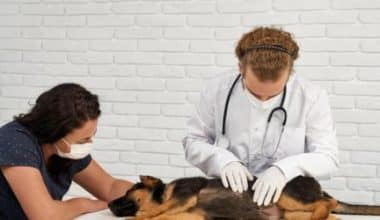The advent of the “horseless carriage” brought with it a plethora of new insurance regulations and responsibilities, such as the necessity to sign up for coverage before hitting the road. However, the horse itself raises a number of related as well as distinct problems. That’s where equine insurance coverage comes in. Equine insurance coverage offers comfort and solutions for numerous hazards that are specific to the sector. This article entails everything you need to know about equine insurance coverage, including the types. So, why not dive in now?
What Is Equine Insurance?
Getting equine insurance is important because it might be costly to own a horse, particularly if you’re not ready financially. If your horse becomes critically ill, the cost of treatment can quickly add up. If your horse does not make it, you will suffer a devastating emotional loss and also stand to lose a significant amount of money. You won’t have a horse and won’t have the money to get another if your horse is taken and not found.
Buying equine insurance is one way to secure both your horse and your finances. If your horse gets sick, the correct plan will help spread the expense and cover you for his worth in the event that he dies or is stolen. You can get insurance to protect you if your horse is harmed while being ridden or handled if he causes damage to a neighbor’s property, or if he is unable to fulfill the purpose for which you purchased him. Continue reading to learn about the many types of equine insurance.
Types of Equine Insurance Coverage
Getting familiar with the various types of equine insurance coverage is very important for a horse owner. That is why I have compiled the types of equine insurance coverage for you to know everything about them. Check them out:
#1. Major Medical
Major medical is the first category of equine insurance. You already have a basic knowledge of how major medical insurance for horses operates if you have one for yourself. Equine medical insurance pays for treatment and care from veterinarians, including examinations, tests, surgeries, and medications. There is usually a deductible for each incident, and every insurance policy has an annual maximum for the amount it will pay out for each incident and each horse.
The underwriters of the insurance company examine these policies for renewal every year, and exclusions apply. If your horse suffers from colic and requires surgery, and your insurance company reimburses you in part for the cost of the procedure, they may drop coverage for colic the following year if you renew your policy.
Before you buy an insurance policy, some insurance companies need a veterinarian health certificate as evidence that your horse is free of pre-existing problems. Anything pertaining to these conditions will not be covered by the policy. Age restrictions apply to all insurance firms as well. You’ll find it difficult to find big medical insurance that will cover your horse if he is 15 years of age or older; however, this will vary from company to company.
#2. Surgical
Surgical equine insurance is the second kind. The policies kick in just when your horse needs surgery, as opposed to major medical policies, which pay for all veterinarian expenses. They also pay for costs directly associated with the operation, like the surgeon’s fee and the cost of the anesthesia administered to the horse. They don’t pay for the majority of the bill that comes from having to stay in the hospital before and after the operation. Surgical insurance is a better option than no insurance at all if major medical insurance is out of your price range.
#3. Loss of Use
If your horse gets sick or wounded to the extent where it can no longer perform the reason you got it, which is usually riding, loss of use insurance will cover you. The insurance company makes a payout based on a predefined amount that you and the company have agreed upon. When you purchase a loss of use coverage, major medical insurance is also required.
While loss of use insurance may seem like a smart idea, collecting on these policies can be quite challenging since it can be challenging to demonstrate to the insurance company that a horse is no longer effective for its intended use. Some policies additionally stipulate that in order to get payment, the owner must put the horse to death or give it to the insurance provider.
#4. Personal Liability
Personal liability equine insurance is the final kind. It covers you in the event that your horse causes property damage or injuries to other people, just as liability coverage in a homeowner’s policy. Many people discover that having this kind of insurance gives them peace of mind, particularly if their horses are in close proximity to other individuals. Make sure this form of coverage isn’t already included in your homeowner’s policy before you get this kind of insurance.
#5. Mortality
Mortality insurance is the next category of equine insurance. Insurance companies mandate that you obtain complete mortality insurance (and vice versa) when you take out a large medical or surgical policy on your horse in order to ensure that you will do everything in your power to preserve your equine companion. In the event that your equine passes away due to disease, an accident, or theft and recovery, full mortality insurance will pay you back the amount agreed upon when your equine was insured.
Bear in mind that obtaining complete death coverage could be difficult if your horse is older than fifteen years.
#6. Limited Mortality
Limited mortality insurance will pay you back for the value of your horse in the event that it passes away due to an accident or another predetermined cause. To obtain this kind of insurance, you do not need to have a surgical or medical policy in place. The majority of customers who buy limited mortality insurance do so because their horse is in danger of an accident due to unique circumstances. Get a restricted mortality policy, for instance, if you are exporting your horse across the nation. The insurance provider will reimburse you for the declared worth of your horse in the event that it passes away in a trailer accident while being transported.
How to Begin with The Types of Equine Insurance Coverage
The cost of your equine insurance will vary depending on a number of variables, such as where you reside, the horse’s reported worth, and the kind of coverage you choose. The annual cost of major medical and mortality insurance varies from $400 to $800, contingent on the horse’s worth, your choice of deductibles, and the payout ceiling.
Asking your veterinarian for a recommendation is the easiest method to find a reliable horse insurance provider. Veterinarians work with horse insurance companies frequently and are aware of which ones pay out most frequently and quickly. Insurance firms can also benefit from the expertise of other horse owners. Find out who your equestrian friends and business associates recommend. In addition to searching online for “equine insurance,” you can also peruse the advertisements in equestrian magazines.
Verify that the insurance provider you select is supported by an authorized insurer. Before you sign up, make sure you ask a lot of questions of the insurance agent about the policy and the company backing it.
Equine Insurance Coverage for Your Equine Investments
There are numerous equine insurance options to take into account, such as:
- Stable Liability: This lessens the risk arising from the activities of stable owners.
- Care, Custody or Control of Livestock: Liability coverage for harm to cattle under your care, custody, or control is provided by this.
- Liability for Equine Professional Services: Trainers are covered for liability, and non-owned horses are covered for property damage.
The following is covered in part by equine property endorsement:
- Up to $10,000 for damage or loss to tack equipment.
- $1,500 for animal health product deterioration.
- $5,000 will be spent on new signs.
- Fences, corrals, and pens cost $3,000.
Other Farm Property Coverages may include:
- Services provided by the fire department and the removal of pollution and debris are examples of ancillary coverage.
- Optional coverages include those for computer failure, business income, and operations disruption.
Among the Special Liability Coverages are:
- Personal and public liability insurance for stables and stable owners
- Standard home insurance policies, together with broader choices for expensive properties, extra liability, household goods, and scheduled personal property
- Injuries sustained when horseback riding are not uncommon, as horses are huge, powerful animals. Therefore, it’s crucial to have the appropriate insurance coverage to aid in addressing the special risks faced by owners of horses and equestrian enterprises. For individual horse owners as well as for equine-related businesses like riding stables, breeders, ranches, or farms that provide equine boarding services, equine insurance can help cover unforeseen medical bills, while equine liability insurance can help cover costs in the event of horse-related damages or injuries.
Top Equine Insurance Company
Here is a equine insurance company you can go for:
ASPCA Pet Health Insurance
The only pet insurance provider that offers coverage for horses is ASPCA Pet Health Insurance. There are two coverage plans available: colic, accident, and illness and colic, and accident. Regardless of the plan you choose, it’s advantageous that ASPCA Pet Health Insurance covers colic, one of the most common health issues affecting horses, which occasionally necessitates emergency surgery.
Routine and Platinum are the two preventive care add-ons that ASPCA Pet Health Insurance offers. These come at a higher monthly cost, but they extend dental coverage, wellness checks, and vaccines. Higher per-item limitations and greater coverage for a blood test, Coggins test, fecal test, and extra vaccine are features of the Platinum plan. The monthly cost of the Platinum add-on is $24.95, whereas the Routine add-on is $9.95.
Preexisting diseases are not covered by ASPCA Pet Health Insurance like they are by any other pet insurance company. Additional disqualifications include navicular disease, joint injections, and arthritis. There is also a 15-day waiting period for both plans.
Alternative to Equine Insurance Company
Here is an alternative to an equine insurance company you can opt for:
Pet Assure
Pet Assure is a less expensive option if you’re not ready to commit to an equine insurance plan. This service offers care at a reduced cost by partnering with vets in its network. Pet Assure is a discounted veterinary service rather than an insurance plan. You receive a 25% reduction on your veterinary expenditures in exchange for a set monthly or annual payment. Pet Assure is only offered by in-network veterinarians, as opposed to standard pet insurance, which is accessible to any licensed veterinarian. Before receiving your horse’s treatment, make sure to use the network search function on the company’s website to identify qualified providers.
In contrast to other pet insurance providers, Pet Assure does not place limitations on your horse’s age and covers pre-existing conditions. There are also savings for regular medical care.
How to Determine Necessary Equine Insurance Coverage
Start by thinking about your initial investment and how it might increase over time, as well as the liability and danger to your horse-related assets, in order to ascertain what kind of equine insurance coverage you need. It’s a fact that having any animal, be it a hamster or a horse, involves some necessary expenses. Usually, these consist of expenses for food, healthcare, and grooming. You’ll also need to invest more money in equipment for your horses, including a water bucket, a strong fence, a barn or stable, a horse trailer, and even some areas set aside for pasture. When getting the right horse insurance coverage, insurance for these is something to think about because they can be costly.
The purchase of a horse does not include the saddle, bridle, bit, reins, stirrups, cinches, spurs, horse blankets, and other tack that may be required. You’ll end up investing a significant sum of money with all those costs, far more than the initial cost of your horse. Even though your horse is more than just an investment, you need to take precautions to prevent losses on it and any associated assets. Equine insurance can help with that.
Why Is Equine Insurance Needed?
The financial hazards of loss or damage associated with owning a horse can be partially mitigated by equine insurance.
The upkeep of your horse entails regular outlays for things like veterinary care, feed, tack, and maintenance on the barn and the horse itself. Equine insurance may frequently cover these latter elements. However, many facets of equine operations, including breeding, boarding, displaying, and training horses, are usually not covered by regular homeowners’ and farm owners’ insurance policies. You should think about the variety of equine insurance coverage options and endorsements that can help you safeguard your horse operations in the case of a covered loss, regardless of whether you own one horse for pleasure or multiple horses for competition, equine operations, ranching, and farming.
Is Equine Insurance Required?
Equine insurance, like any insurance, is a great way to manage risks and safeguard what may be a very precious asset. The insurance options available to the horse industry have developed over the last forty or fifty years to the point where almost any potential cause of loss can be covered. The horse’s life and the ultimate medical costs that all horse owners incur are exposures that can be postponed by specialized insurance providers.
Does My Horse Get Covered by My Home Insurance?
It is improbable that a home insurance policy would offer coverage extensions to adequately cover horses or equestrian activities. Millions of people suffer common risks, which are covered by house insurers for a wide range of homeowners and tenants. According to our observations, the carriers claiming to insure the horse against death or liability would not account for the very different reality of horse ownership, which involves the horse being boarded 25 miles away and under the facility manager’s care, custody, and control rather than in a suburban backyard fence like a dog or cat.
The Need for Equine Pet Insurance
Horses are a significant investment, whether you own a farm pony or a prize-winning show horse. Any moment might be a bad day for your horse, and insurance gives you the assurance that you can get the treatment your horse needs without worrying about the cost.
Typical Health Problems for Horses
Any animal can experience health problems at any point in its life. While there are steps you can take to help your horse stay healthy, once it becomes ill or injured, it may be more vulnerable to further diseases or injuries. The following are various types of health problems in horses:
- Allergies: Skin problems can arise from allergies. Sometimes antihistamines are necessary, although normally they clear up on their own.
- Back issues: Horses frequently experience back issues, whether as a result of an uncomfortable saddle or a damaged ligament. Your horse may have pain from this and might need long-term care.
- Colic: A horse’s digestive tract is impacted by colic, and severe cases can be lethal. Banamine injections can be used to treat minor bouts, although emergency colic surgery may be necessary in more severe situations.
- Laminitis: An inflammation of the tissue beneath the hoof wall is called laminitis. It may be lethal, debilitating, or cause lameness. Both medical care and corrective footwear are necessary.
- Mud rash: When bacteria from mud get into a horse’s circulation through wounds or cracked skin, it can result in mud fever. Although it can be treated topically, antibiotics are occasionally needed.
- Thrush: An infection in the horse’s foot sole is known as thrush. Antibacterial spray is frequently effective in treating it, but more aggressive care may be needed in cases where the infection spreads upward into the hoof.
- Vermin: Horses that frequently graze or are in close proximity to other animals are more vulnerable to parasitic worms. Worms might result in colic or other digestive issues. As a preventative step, horses should receive dewormers every three months.
Is there Coverage for Horses?
For individual horse owners as well as for equine-related businesses like riding stables, breeders, ranches, or farms that provide equine boarding services, equine insurance can help cover unforeseen medical bills, while equine liability insurance can help cover costs in the event of horse-related damages or injuries.
What Does Equine Insurance Serve to Accomplish?
The majority of horse insurance policies include required minimum coverage for “death, theft, and straying,” which, in the event that one of these scenarios occurs, will reimburse the horse’s market value. You can design a policy that meets your needs with the variety of extra, optional advantages that are offered.
What kind of Insurance Is Necessary for Horses?
Mortality and major medical policies, which are similar to human life and health insurance, are the most common types of equine insurance obtained by owners. In general, death insurance pays out to the owner of the horse in the event of the animal’s demise.
Final Thoughts
You can still obtain high-quality coverage for horses even if there aren’t as many possibilities as there are for other pet insurance kinds. Plans from the ASPCA and Pet Assure can help you save money and keep you from having to decide if you can afford to take your horse for essential medical treatment. Different coverage standards may apply, depending on the demands and job of your horse. We advise you to read through policies, evaluate costs, and select a provider depending on what best satisfies your needs and those of your animal.
- Pet Insurance in Michigan: Best of 2023
- BEST PET INSURANCE IN MASSACHUSETTS (MA) 2023
- Pet Insurance in Ohio: The Best in 2023
- Pet Insurance in Florida: Best of 2023






